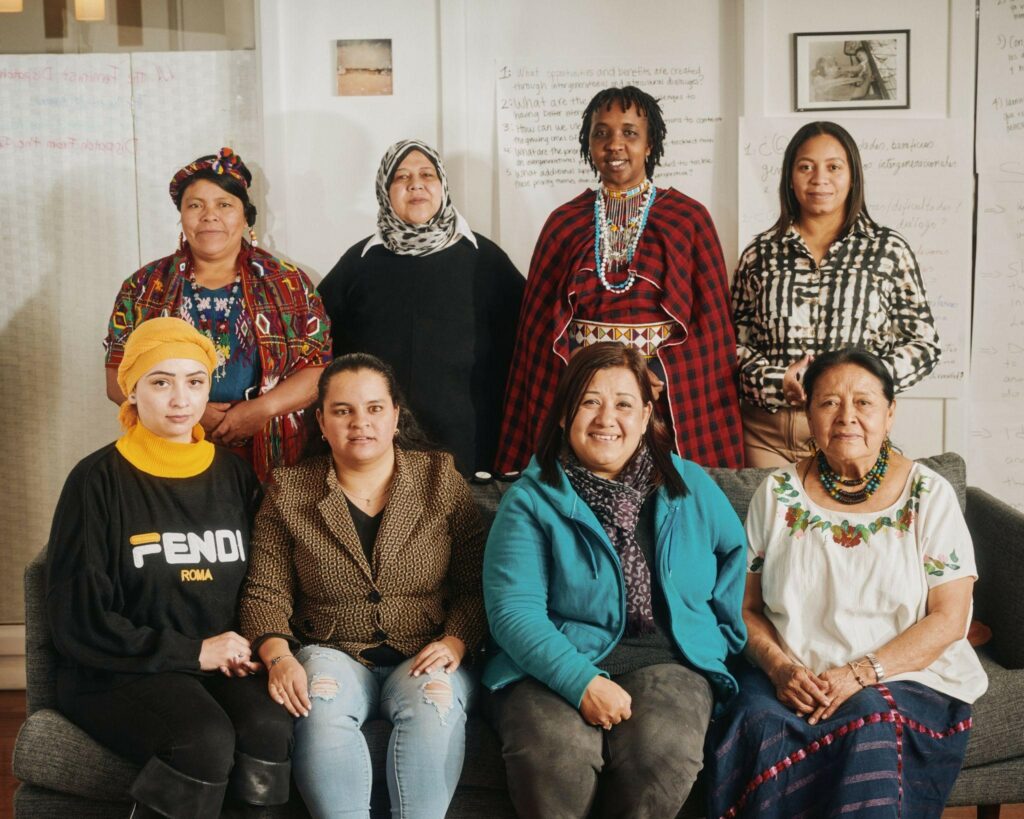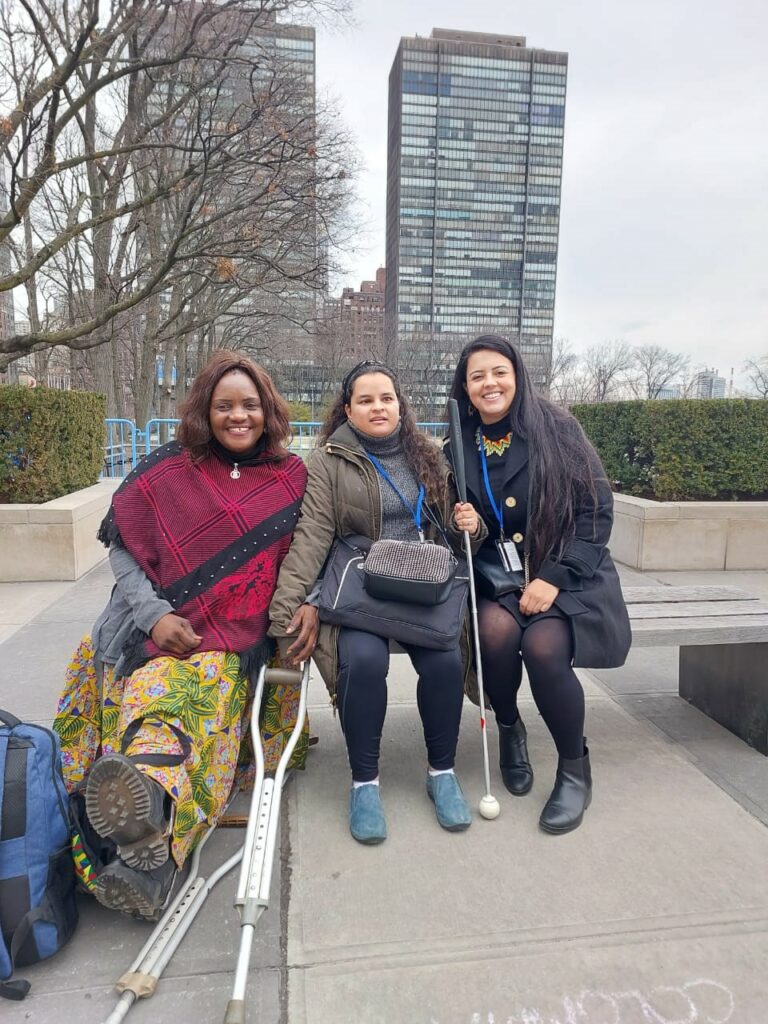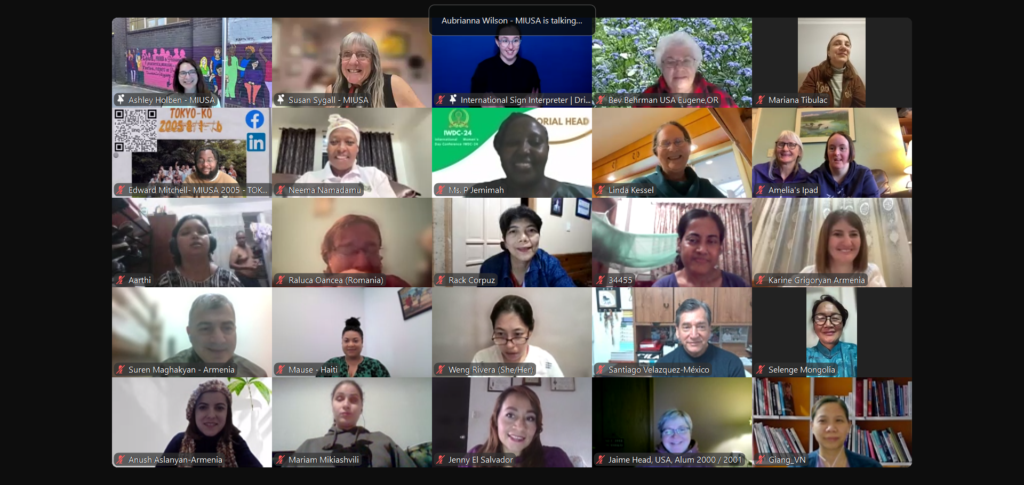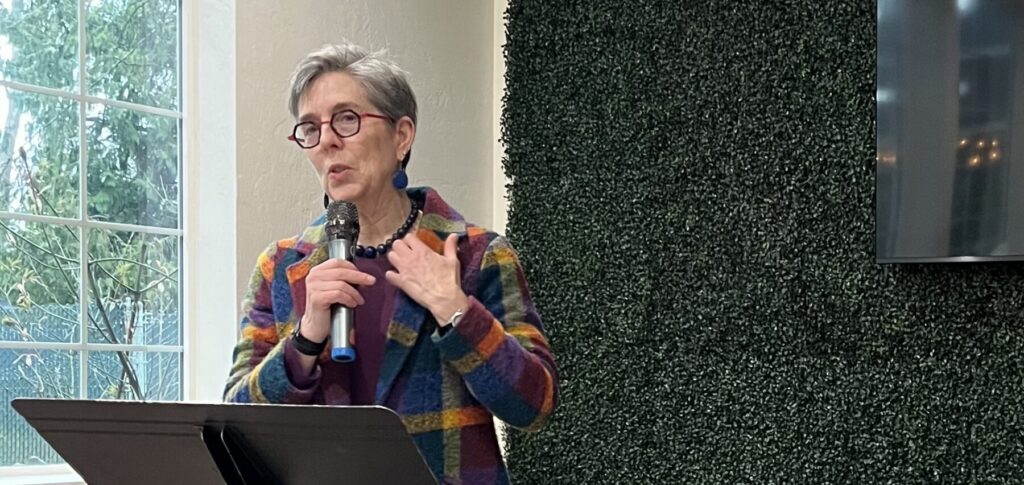Achieving gender equality is a feat that one person alone cannot take on. Every year, the voices and faces of the global gender equality movement come together to exchange their aspirations and radical ideas during the United Nations Commission on the Status of Women (CSW). The CSW is the principal global intergovernmental body of the UN dedicated to the empowerment of women and the promotion of gender equality.
On the 6th of March, accomplished women traveled from across the globe to meet in New York for the 67th session of the CSW. This year’s priority theme was innovation and technological change and the use of education in the digital age in achieving gender equality.
With support from MADRE, a feminist grantmaking organization, several vibrant and diverse women activists from around the world were able to participate at the CSW, including Estefania Cubillos, alumna of MIUSA’s Women’s Institute on Leadership and Disability (WILD). Estefania is originally from Colombia but she currently lives and works in Panama.
Traveling almost six hours from Panama to New York to participate in the parallel events organized by MADRE seemed to be a feat in itself. Even so, I had a fulfilling experience being part of a prominent delegation where I shared my experiences with passionate women from Africa, Asia, and Latin America. We listened to each other’s life stories, shared our dreams and trajectories in groups about self-reflection, and learned through climate change panels about important practices toward funding feminist projects. I even had the opportunity to speak at a presentation about Accessibility Protocol through a feminist approach with advocates from the women-led organization, Women Enabled International (WEI).

Despite my positive experience, I encountered challenges as a blind woman registering for the CSW on the Whova platform, an event management software. I was only able to register on this event platform due to receiving support from the MADRE team that assisted me in coming to CSW in the first place. It seems ironic that I even encountered this obstacle, with the main theme of this year’s CSW being focused on digital innovation and access to technology for women. Regardless of the organizing entity, event registration and dissemination platforms should be accessible for all women, considering their disabilities and accessibility needs.
Furthermore, I was disappointed that I had only met three women with disabilities in different events during the parallel and official events at the CSW. While there may have been more, girls and women with disabilities are missing out on these powerful conversations and crucial networking opportunities. It is pivotal that inclusive and accessible spaces are created for women to participate in all upcoming sessions of the CSW. We are working hard with MADRE to make this reality possible for women with disabilities, especially with how exclusive CSW is as an event where organizations and women must finance their own expenses to attend.

I call on the philanthropic community to support the participation of disabled women’s organizations in all international events by providing funding to overcome barriers, such as lack of sign language or other language interpretation. From my own experiences at the CSW, I find it essential that women with disabilities are not left behind and can fully participate in these aspiring spaces.
My fellow WILD sisters, I invite you to dream and believe that you too can attend and network as women with disabilities from around the world advocating in places like CSW. We are here to stay and will not leave until inclusion is fully achieved. We will continue to fight until our voices are heard and have a genuine impact in all events where gender equality is discussed on a global scale.
Sign up for our E-News






Manage Your Privacy